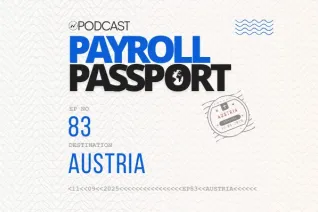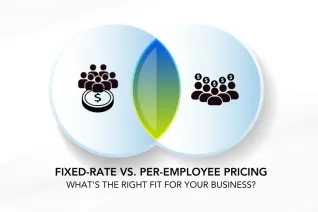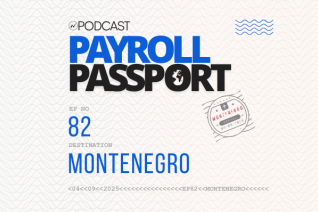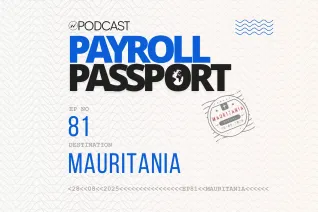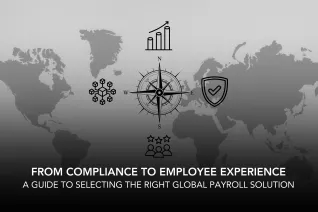Country Spotlight: Payroll in the Netherlands

In 2021, the Netherlands accounted for 0.76% of the global economy.
The transportation and agricultural sectors comprise most of the country’s economic sectors. At the same time, chemicals, petroleum, construction, fishing, and metal are other industries that have opened a broad spectrum of employment opportunities.
Due to the numerous employment alternatives it offers, processing payroll for the country’s workforce might be complicated.
Dutch law requires businesses with more than 50 employees to have a work council. When it comes to the payroll process in the country, it is essential to have a good understanding of payroll tax, wage tax, and much more.
Let’s dive deeper and understand what it’s like to process payroll in the Netherlands, where pay frequency is predominantly once a month without much variation across sectors.
Understanding the intricacies of minimum wage
When doing business in the Netherlands, you need to be aware that minimum wages in the Netherlands are usually updated twice a year. The minimum wage for those 21 years and older was last altered in July 2022.
Likewise, there is a minimum wage for income earners below 21 years.

Companies must adhere to the minimum wage set by the government; otherwise, it becomes a violation.
Keeping track of the minimum wage and adjusting it annually is almost impossible without a global payroll provider that ensures you remain compliant and is cognizant of rapidly changing local laws and regulations.
Understanding tax in the Netherlands

Belastingdienst, the Dutch Tax and Customs Administration collects taxes and social security contributions in the nation.
Employers deduct taxes from employee paychecks depending on the statutory tax rates set by the government. The tax rates, however, are frequently changed each year. The withholding of income tax from your salary by your employer is known as wage tax.
The Dutch government released its Tax Plan 2023 on September 20, 2022, significantly changing tax rates.
Expat employees who meet the requirements can apply for the 30% ruling tax exemption, which, if approved, exempts them from paying 30% tax on their income for five years.
Calculating taxes for each person in the company is challenging enough without the annual changes to tax rates. And for organizations that still manually process their payroll, it is arduous to arrive at an accurate output. Those who fail to make their tax payments face severe penalties: failing to pay the first time will cost you €2,460, and it can reach a maximum of €4,920.
Working hours for employees in the Netherlands
In the Netherlands, a full-time worker usually works between 36 and 40 hours a week. Some companies expect employees to clock in 40 hours, unlike the standard 38 hours per week most companies in the country opt for.
Labour laws in the Netherlands do not state an overtime pay rate. It is usually in the employment contract, and the rates are generally 50% or 100% of the regular pay or time off.
Keeping track of time and overtime, especially when the company has its workforce dispersed across the nation, becomes arduous. There is a need for extensive multi-mode time capture and a highly configurable platform with built-in flexibility to meet all your business needs.
This makes it imperative for companies to look for a global payroll provider with a reliable point of reference to apply overtime and other labor laws consistently.
‘One size fits all’ is not the way to payroll in the Netherlands.
Social security
All employees and employers are required to contribute to social security. In 2021, an average single worker had a net average tax rate of 27.5% in the Netherlands, compared to the OECD average of 24.6%.
The social security contributions are deducted at source: Employers have to contribute 23.59% while employees contribute 27.65%.
- 9% towards the Dutch pension fund,
- 65% towards the long-term care fund, and
- 1% towards survivor benefits.
Expats also need to contribute to social security to access certain benefits.
To navigate through the turbulent payroll waters without an expert will be challenging. Understanding the intricacies of the tax authorities, employee insurance, and maternity leave are all critical to ensuring that employees are paid on time.
So if you don’t want to let payroll get in the way of achieving your core business goals, look no further than Neeyamo.
Powered by a single global engine and a global payroll tech stack that tackles every step of the payroll process, our technology-first approach, coupled with a scalable delivery model and hyperlocal presence, provides the perfect solution for all your global payroll needs.
Whether your employees work in the Netherlands or any nook and corner of the world, we can optimize, standardize, and harmonize your payroll process.
To gain more insights from our global experts, reach us at irene.jones@neeyamo.com.
Latest Resources
Stay informed with latest updates
If you're curious and have a thirst for knowledge pertaining to the HR, payroll, and EOR universe, don't miss out on subscribing to our resources.




